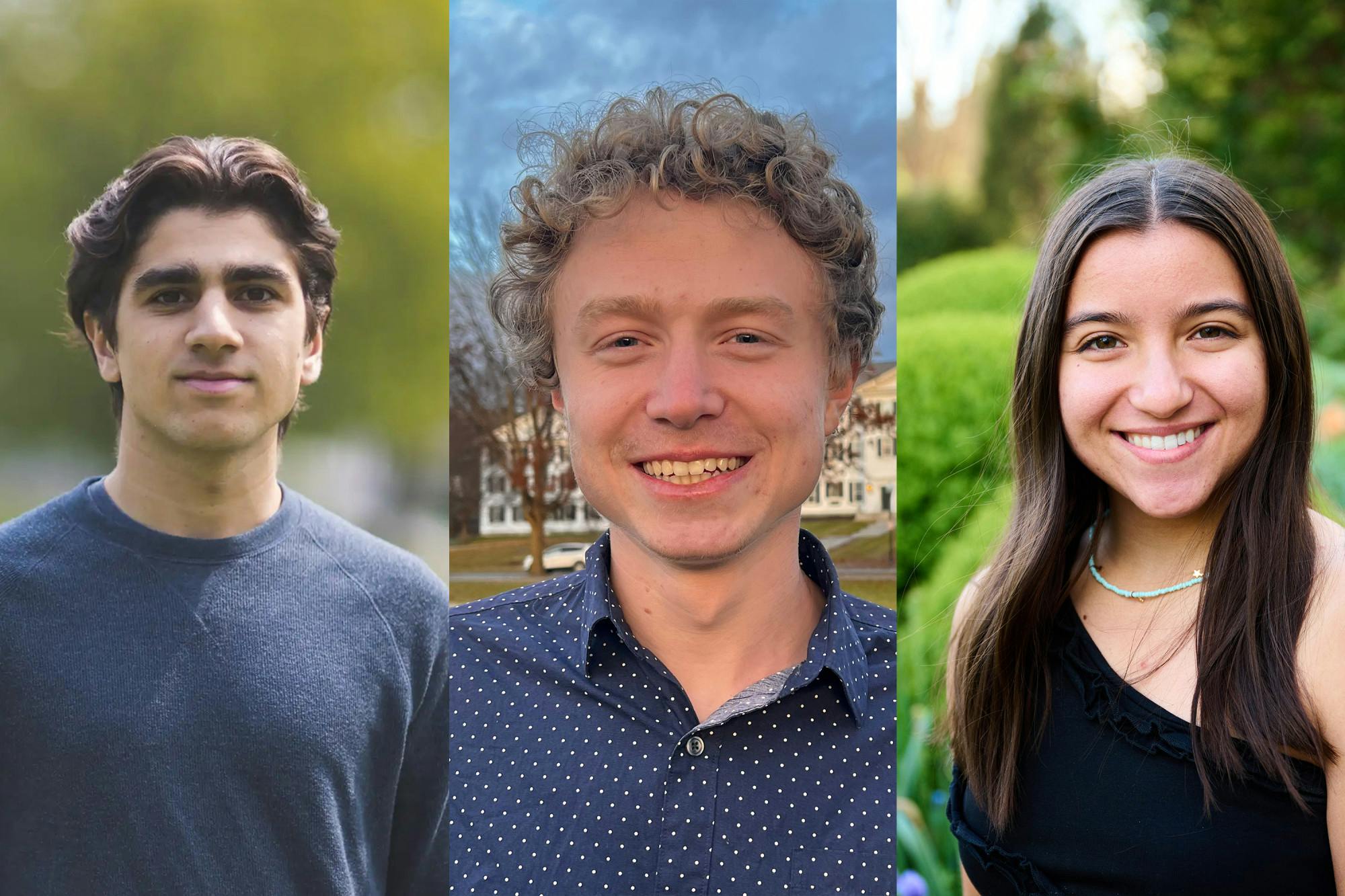Jessica Chiriboga ’24 and Zachary Lang ’23 have been named Rhodes Scholars, bringing the total number of Dartmouth students who have received the award to 81. The Rhodes Scholarship, which fully funds graduate studies at the University of Oxford in Britain, is the oldest international graduate scholarship in the world, according to its website.
Additionally, Maxwell Teszler ’23 was named a Marshall Scholar, making him the fifth Dartmouth student to ever receive the award. The Marshall Scholarship fully finances the postgraduate studies of 50 Americans at any British university.
In the College’s press release, President Sian Beilock congratulated the Rhodes Scholarship recipients.
“It is a joy to congratulate [them] on this profound achievement, which reflects not only their outstanding academic accomplishments but their outsized commitment to making Dartmouth a better place to live and learn for everyone,” she said.
In an email statement to The Dartmouth, Chiriboga wrote that she plans to use her Rhodes Scholarship to pursue a Master of Philosophy in U.S. history. She aims to write a dissertation focused on Latino environmental activism and outdoor recreation in the San Gabriel Mountains in California from 1848 to the early 21st century.
Chiriboga wrote that she looks forward to advancing her studies and continuing to pursue her research while at Oxford.
“I [will be able to] deepen my knowledge of environmental history, political history and Latino history at Oxford’s Rothermere American Institute, and will have the chance to come back to southern California between each term to continue my research,” she wrote.
Teszler said he plans to use his Marshall Scholarship to obtain his master’s in plant genetics at the University of East Anglia in the United Kingdom, which he said is a “global hub for research into basic plant biology.”
Following the completion of his master’s degree, Teszler aspires to obtain a Ph.D. in biology and conduct research in the field of plant genetics.
“I want to run my own research lab researching things like how we can make plants more environmentally resilient, or design crops with higher yields with less need for chemical fertilizer,” he said.
Chiriboga wrote that she began the application process for the Rhodes Scholarship during her spring term of junior year while looking into potential graduate schools. Once selected as a finalist, she flew to southern California for an interview, where she met the other finalists in her district and learned the final decision.
“I was shocked when they said my name, and I even started crying,” she wrote. “I’ve driven from Pasadena, where the interviews took place, to my hometown hundreds of times. But there was something special about driving home that night on the 210 freeway, with the San Gabriel Mountains that I research towering over my car, and having the chance to call friends and reflect on the work I have done.”
Teszler described the moment he received the news of his scholarship as “surreal.”
“I received the news through a call on a Friday afternoon — it was very funny because I initially thought the call was spam,” Teszler said. “But then they called me again, and I responded. The whole committee that had interviewed me was there on the other end of the line to congratulate me … I had to tamp down my excitement around my friends because news of the scholarship was confidential for several weeks.”
He also said that the scholarship represents “a fantastic culmination” of his studies at Dartmouth, adding that he is grateful to the “incredible mentors” he has found there, specifically biology professors Robertson McClung and Mary Lou Guerinot and Outdoor Programs Office associate director Willow Nilsen.
For Chiriboga, the community provided by the Rhodes Scholarship is a significant part of the award’s appeal.
“I also look forward to meeting Rhodes Scholars from around the world,” she wrote. “We are united by a natural drive to make the world a better place, but we have approached this in distinct ways. I am eager to hear more about others’ work and how we, as individuals and as a collective, can fight the world’s fight.”
Chiriboga is “deeply aware of the privilege and responsibility that comes with this scholarship” and aspires to use her research to address societal inequities. She added that she is especially grateful for the role her parents have played in her success.
“I endeavor to do good in this world and to use the privilege of an Ivy League education and a Rhodes Scholarship to support the most disadvantaged in our society,” she wrote.
Reflecting on his academic journey, Teszler offered some advice for current students.
“Pursue what drives you,” Teszler said. “I certainly didn’t start thinking about this scholarship until the spring of my senior year. Until then, I was just focused on doing the things I was passionate about — uncovering genetic pathways in the research lab, leading hikes outdoors, writing, etc. I think what these scholarships are looking for are people with real passion and dedication to what they do.”
Zachary Lang ’23 was not available for an interview by the time of publication.
Maxwell Teszler ’23 is a former Opinion columnist.




